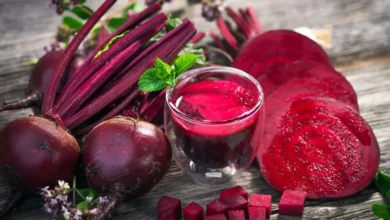Top 10 Nutrient-Dense Foods to Add to Your Diet Today
Eating healthy isn’t just about reducing calories or avoiding certain foods—it’s about choosing the most nutritious options available. Nutrient-dense foods are those that deliver a high amount of vitamins, minerals, antioxidants, and other beneficial compounds with relatively few calories. Including these in your everyday meals can significantly boost your health, energy, and overall wellness.
Here are 10 of the most nutrient-dense foods you should consider adding to your diet right now.
Leafy Greens (Kale, Spinach, Swiss Chard)
Leafy greens are packed with fiber, vitamins A, C, K, and minerals like calcium, iron, and magnesium. Kale, for example, contains powerful antioxidants like quercetin and kaempferol, which help combat inflammation. These greens are also incredibly low in calories, making them an excellent choice for weight control. Add them to salads, smoothies, soups, or sauté them with olive oil and garlic for a simple side dish.
Wild Salmon
Wild salmon is not only a great source of high-quality protein but also rich in omega-3 fatty acids, which are essential for heart and brain health. It provides a solid dose of B vitamins, potassium, and selenium. Try it grilled, baked, or served over a quinoa bowl with veggies for a satisfying, nutrient-rich meal.
Blueberries
These tiny berries pack a big punch when it comes to antioxidants, especially anthocyanins, which help protect the brain and reduce oxidative stress. They’re also a good source of vitamin C, vitamin K, and fiber. Enjoy them fresh or frozen in smoothies, oatmeal, or as a naturally sweet snack.
Eggs
Eggs are one of the most complete sources of protein and contain nearly every nutrient your body needs. The yolk provides important fat-soluble vitamins (A, D, E, and K), choline for brain health, and antioxidants like lutein and zeaxanthin, which support eye health. Boil them for a snack, scramble for breakfast, or add to salads and bowls.
Sweet Potatoes
Sweet potatoes are a complex carbohydrate high in beta-carotene, which the body converts into vitamin A. They’re also rich in fiber, vitamin C, potassium, and manganese. Unlike white potatoes, they have a lower glycemic index, meaning they provide sustained energy. Roast them, mash them, or slice and bake them into healthy fries.
Greek Yogurt
Greek yogurt offers twice the protein of regular yogurt and is loaded with probiotics, which support gut health. It’s also high in calcium, potassium, and B vitamins. Choose plain, unsweetened varieties to avoid added sugar, and top with fruit or nuts for a nutritious breakfast or snack.
Nuts (Especially Almonds and Walnuts)
Nuts are a great source of healthy fats, protein, fiber, and various vitamins and minerals. Almonds are especially rich in vitamin E and magnesium, while walnuts are a plant-based source of omega-3 fatty acids. Eat a small handful daily as a snack or add them to salads and oatmeal for a nutritional boost.
Avocados
Avocados are unique fruits that are high in monounsaturated fats, particularly oleic acid, which supports heart health. They also provide fiber, potassium, folate, and vitamins C, E, and K. Spread them on whole-grain toast, blend into smoothies, or use them to make guacamole.
Garlic
Garlic has been used for centuries for its medicinal properties. It contains a compound called allicin, which is known to boost immune function and reduce blood pressure and cholesterol levels. It’s also rich in vitamin C, B6, and manganese. Use it raw or cooked in almost any savory dish to add both flavor and health benefits.
Quinoa
Quinoa is a gluten-free grain that is also a complete protein, meaning it contains all nine essential amino acids. It’s rich in fiber, magnesium, iron, and B vitamins, making it a great substitute for refined carbs like white rice or pasta. Cook it in vegetable broth for more flavor and use it in salads, bowls, or as a base for roasted vegetables and lean proteins.
Why Nutrient Density Matters
Focusing on nutrient-dense foods means you get more nutrition per bite, which supports your body’s needs without excessive calorie intake. These foods help improve energy levels, support brain function, strengthen immunity, and reduce the risk of chronic disease. Instead of obsessing over strict diets or calorie counting, aim to fill your plate with a variety of colorful, whole, and natural foods like the ones listed here. They provide the essential fuel your body needs to thrive.
Making the Shift Toward Better Nutrition
Start small. Swap refined grains for quinoa, replace sugary snacks with berries and nuts, and include leafy greens in your daily meals. Over time, these small changes build powerful habits that lead to long-term wellness. You don’t need to be perfect—just intentional. Choose foods that nourish your body and support your health goals, and you’ll notice the difference in how you feel, think, and move.

Hello! My name is Alan Teixeira and I am passionate about helping people live healthier, more balanced lives. From mindful eating to daily habits that promote physical and mental well-being, I believe that small, consistent changes can lead to powerful transformations.
I created this blog to share practical tips, reliable information, and thoughtful insights that can inspire you to take better care of yourself—with balance, mindfulness, and positivity.
If you are looking to improve your health, nourish your body, and build a lighter, more fulfilling routine, you are in the right place. Welcome!





